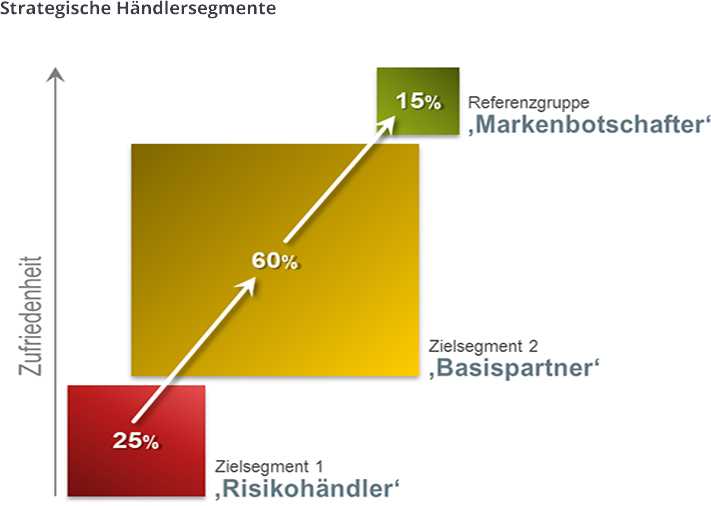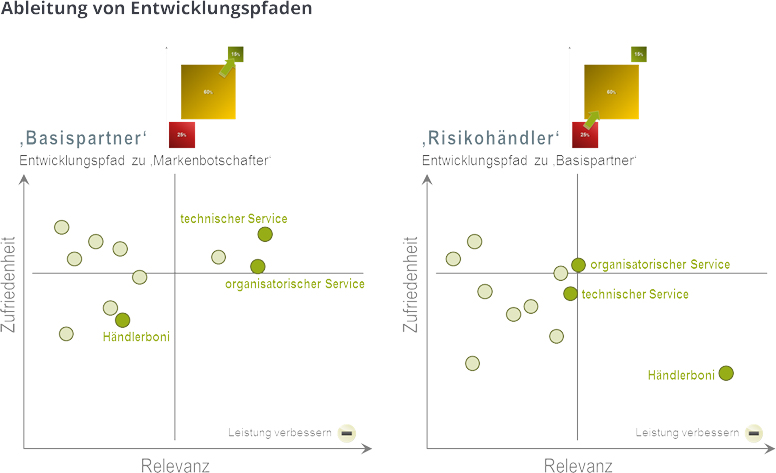Measuring retailer satisfaction
Researching retailer satisfaction is a special subtype of b2b market research. Retailers who sell a manufacturer’s products are surveyed about how satisfied they are with their business relationship with the manufacturer. The target groups for a study about retailer satisfaction are, for example, independent car dealers or telecommunication shops.
Retailers often have an ambivalent relationship to companies whose products they sell. The relationship lies in the conflict between dependence on the one side and a sense of entitlement on the other. Developing the special part of the b2b customer relationship requires differentiated, well-thought-out contact point models, which also capture the specific “captive” situation many retailers find themselves in. The studies for retailer satisfaction are therefore a special case and the market research institute needs to have precise knowledge of this relationship:
- Retailers are to some extent unhappy in the partnership if unable to impose changes
- Dealers as a whole often don’t paint a consistent picture – differentiated approaches for subgroups must be developed
- Some retailers are unhappy purely for strategic reasons and will remain so – their results, however, should not distort the total result
If the design is developed first, studies on retailer satisfaction often function as tracking studies and can, depending on the retailer network, generate a large quantity of similarly structured report pages – automation (in part at least) of reports has huge advantages.







